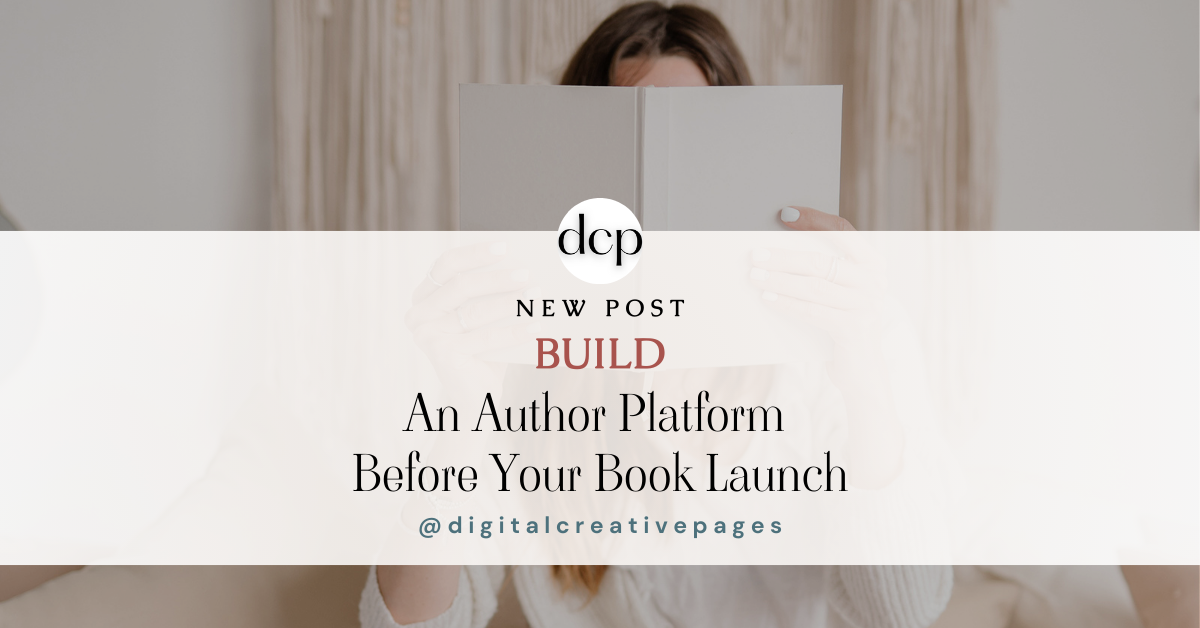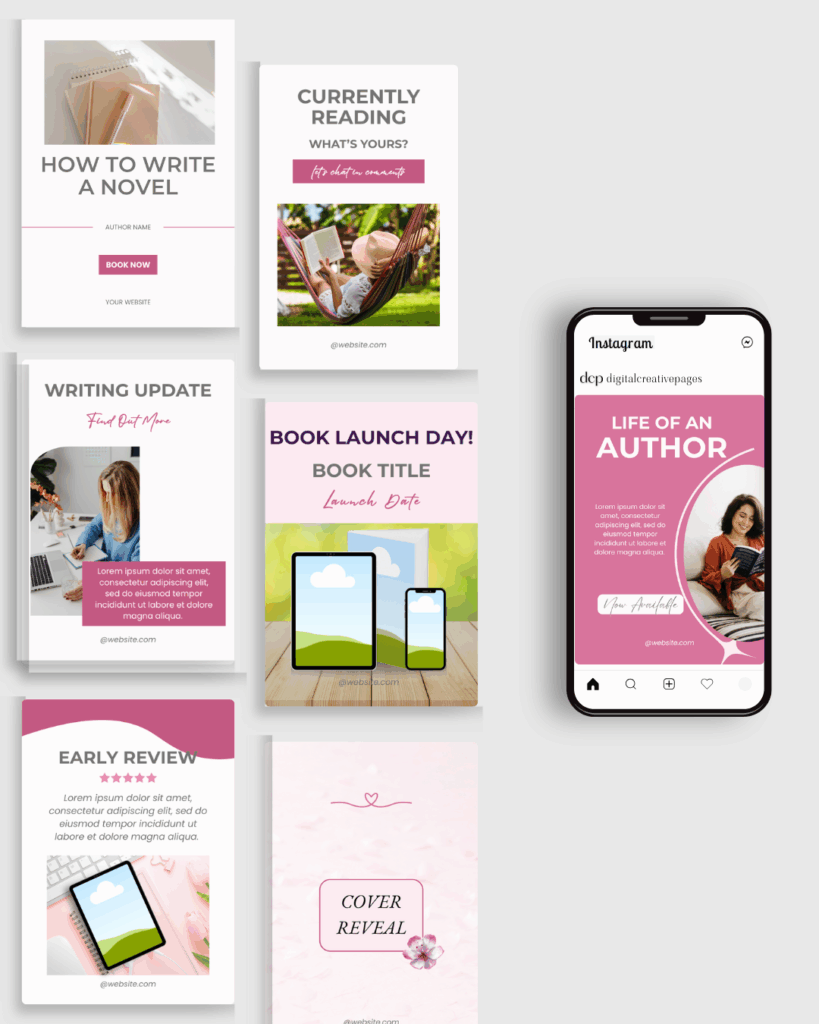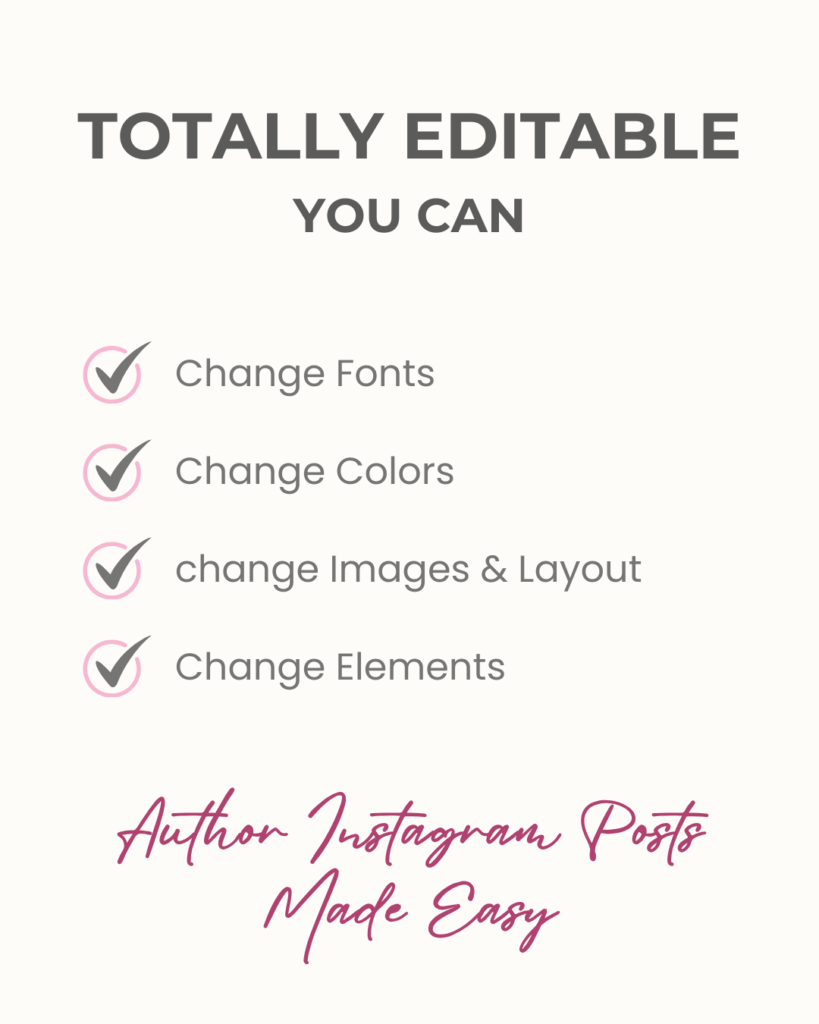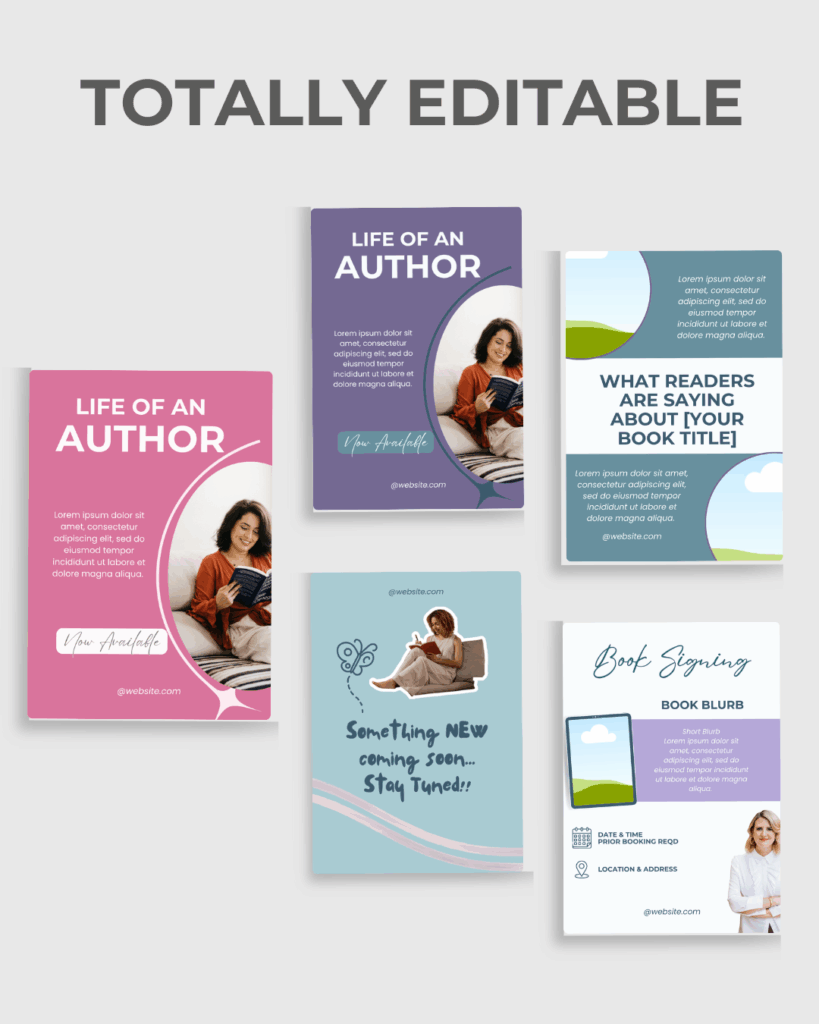Introduction
In today’s competitive publishing world, having a strong author platform is no longer optional. It’s the foundation for connecting with your audience, building trust, and ultimately selling your book. Whether you’re publishing traditionally or going the self-publishing route, starting early gives you a head start in the crowded market. Here’s a comprehensive guide to help you build an author platform before your book launch.
Pin this for later
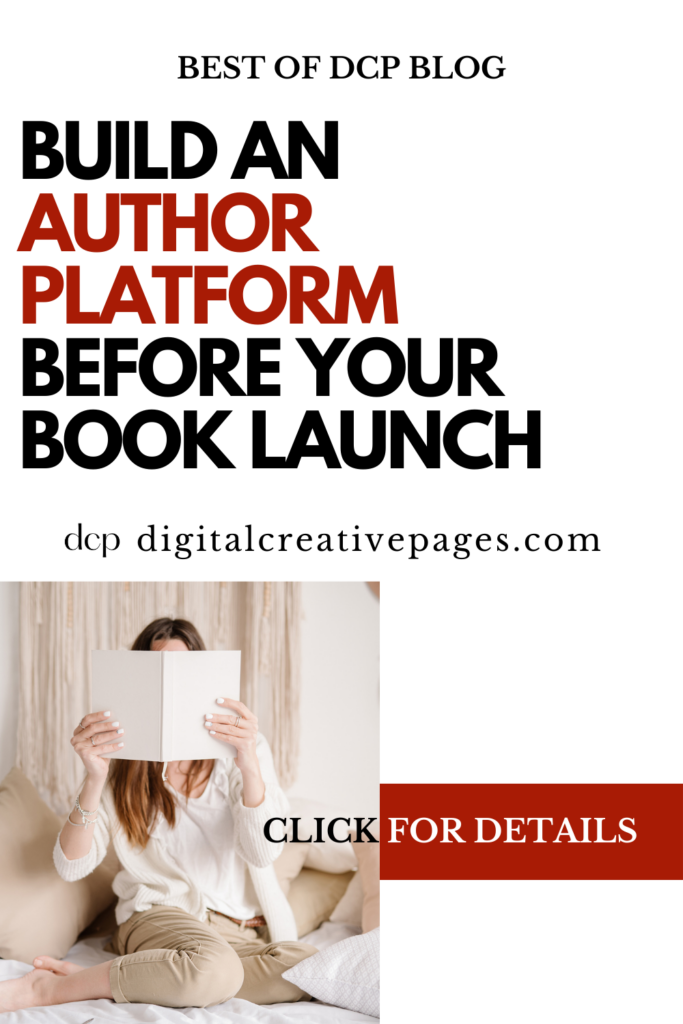
1. Understand Your Target Audience
Before creating content or launching marketing campaigns, you need to know who you’re speaking to. Identifying your target audience will shape everything from your social media strategy to the tone of your blog posts.
Think About This
- What kind of books do they enjoy?
- Where do they spend time online?
- What problems, interests, or hobbies do they have?
This understanding allows you to create content that truly resonates, addressing their preferences, challenges, and interests. Think of your target audience as the foundation for every decision you make in your platform-building process.
Consider the demographics and psychographics of your readers. Demographics cover basics like age, gender, and location, while psychographics dig deeper into values, hobbies, and aspirations. Understanding both aspects ensures your efforts are laser-focused on engaging the right audience.
Take time to outline your ideal reader profile. When you understand your audience, you can craft messaging that resonates with them.
Key steps:
- Conduct surveys or polls in relevant forums or groups.
- Use tools like Google Analytics or social media insights to analyze demographics.
- Create a reader persona with details like age, gender, interests, and reading habits.
- Research books similar to yours and analyze their audience.
- Look for trends in online communities related to your genre.
Pro Tip: Use platforms like Goodreads to identify reader preferences in your genre. Engage in discussions and observe which topics spark the most interest. When you actively participate in conversations, you not only learn but also position yourself as approachable and relatable.
Want easy, practical content tips to grow your business? Join my weekly email list for Canva tricks, new social media updates, and simple strategies that actually work.
2. Set Up an Author Website
Your author website is the hub of your online presence. It’s where readers learn about you, explore your books, and sign up for your email list. A professional website lends credibility and offers a centralized space to showcase your work.
It’s your digital calling card and a crucial touchpoint for readers who want to know more about you.
Think of your website as a one-stop shop for all things you. From sharing blog posts and announcing book releases to offering downloadable freebies, your website is your personal headquarters. Don’t just make it look good; ensure it’s functional, mobile-friendly, and optimized for search engines.
Must-have features:
- A homepage with your bio and book details.
- A blog section for sharing updates and insights.
- An email subscription form.
- Links to your social media profiles.
- A media kit with your author photo, book blurb, and contact info for press inquiries.
- A “coming soon” page for your book launch.
Pro Tip: Make your website SEO-friendly by including long-tail keywords like “writing tips for aspiring authors” or “how to self-publish a book successfully.” Use a clean layout with easy navigation to enhance user experience. Regularly update your site with fresh content to keep readers coming back.
Related Post: How to Create Content from Your Book for Social Media
3. Start an Engaging Email List
Building an email list is one of the most effective ways to connect directly with your audience. Social media algorithms may limit your reach, but emails land straight in your readers’ inboxes.
This direct communication channel ensures that your most engaged fans never miss an update.
Think of your email list as your VIP group. These are the readers who are most likely to buy your book, leave reviews, and share your work with others. Building trust and delivering consistent value through your emails will ensure long-term loyalty.
How to grow your list:
- Offer a lead magnet like a free chapter, writing guide, or exclusive short story.
- Add a prominent sign-up form on your website.
- Promote your newsletter on social media.
- Host a giveaway where signing up for your email list is an entry requirement.
- Collaborate with other authors to cross-promote newsletters.
Pro Tip: Segment your email list into categories such as new subscribers, active readers, and beta readers. Personalize your emails to build a stronger connection. For example, send exclusive updates about your writing process to beta readers and behind-the-scenes stories to your general audience.
4. Leverage Social Media Strategically
Social media is an indispensable tool for building an author platform. However, it’s essential to focus on platforms where your audience spends most of their time. Instead of spreading yourself thin across multiple platforms, choose two or three and excel there.
Social media allows you to show different facets of your personality and writing journey. You can connect with readers on a deeper level by sharing your inspiration, challenges, and victories. Authenticity is key—your followers want to see the person behind the words.
Choose the right platforms:
- Instagram: Great for visual storytelling and connecting with bookstagrammers.
- X: Ideal for writers to join conversations and share updates.
- Facebook: Useful for creating author pages and engaging in groups.
- TikTok: Emerging as a hotspot for book lovers through #BookTok.
Engagement tips:
- Share a mix of content: behind-the-scenes updates, book teasers, and personal stories.
- Use hashtags like #booklaunch, #authorlife, and #amwriting.
- Interact with your followers by responding to comments and messages.
- Host live sessions to discuss your writing process or take audience questions.
- Share user-generated content, such as fan art or photos of readers with your book.
Pro Tip: Schedule posts in advance using tools like Buffer or Later. This ensures consistency and frees up time for writing. Experiment with content formats like Instagram Reels or Twitter threads to discover what resonates most with your audience.
Struggling to keep your author platform active while juggling writing deadlines?
My Author Book Engagement Template Pack includes 112 ready-to-use Canva designs for Instagram and Pinterest. Perfect for cover reveals, book launches, reader engagement, and everything in between. No more staring at blank Canva pages wondering what to post! These templates work for any genre and require no Canva Pro account. Simply download, customize with your book details and brand colors, and post.
For less than the cost of 2 lattes, get your template pack here, and never run out of engaging content ideas again
5. Create Valuable Content
Content marketing is a powerful way to establish authority and attract readers. By sharing valuable insights, you position yourself as an expert in your genre or niche. Your content serves as a bridge, helping potential readers discover your work while adding value to their lives.
Good content isn’t just about quantity; it’s about quality. Focus on providing actionable advice, unique perspectives, or entertaining stories that align with your brand as an author. Consistent content creation also keeps your audience engaged and invested in your journey.
Ideas for content:
- Blog posts: Share tips on writing, publishing, or your book’s themes.
- Videos: Create short reels or tutorials about your writing journey.
- Free resources: Design printables, guides, or worksheets related to your book.
- Infographics that summarize interesting research or stats related to your genre.
- Podcast episodes where you discuss themes or topics from your book.
Pro Tip: Repurpose your content across platforms. For instance, turn a blog post into a YouTube video or an Instagram carousel. Use keywords like “how to write compelling characters” or “top tips for aspiring authors” to boost SEO. Always include a call-to-action directing readers to your email list or website.
Wrapping Up
Building a strong author platform starts with these fundamental elements – understanding your audience, creating a professional online presence, nurturing an email list, strategically using social media, and consistently creating valuable content. These core components form the foundation of your author platform and set the stage for more advanced promotional strategies.
In my next post, I’ll explore advanced techniques for expanding your reach, including networking with other authors, maximizing your presence on reader platforms, and planning an effective book launch campaign. Stay tuned to learn how to leverage these foundational elements into a comprehensive launch strategy that will help your book reach its intended audience.
MY TOP POSTS
My introducer post – check out why I chose Showit as my website builder here
Use my code DCP to get one 1.5 months free on Showit
Get all the resources for your social media and digital marketing without breaking the bank from my DCP Shop here
Pin this for later
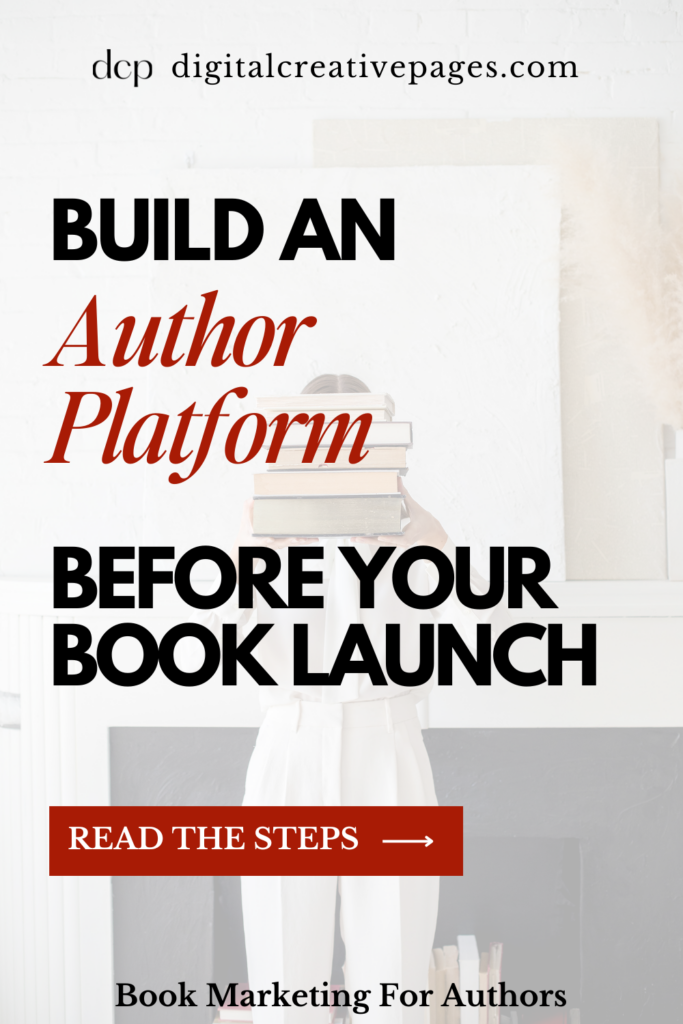
By signing up for my freebies, you are agreeing that I can use your email address to market to you. You can unsubscribe from marketing emails at any time by using the link in my emails.
Previous post
next post
Search + Enter
meet nila
Hi. I am
Nila
Beta reader, book editor, Pinterest manager, Showit VA
I’m a beta reader and book editor and PA for authors, specializing in story clarity and developmental feedback. I run a sustainable online business that keeps working for me 24/7.
Along with this, I offer Pinterest management for overwhelmed creatives and entrepreneurs and set up and customize Showit templates when the tech side gets too overwhelming.
My Shop
Buy now
i need it
Free Stuff
get the goods
check it out
My Favorites
apps + Tools
Yes, please
Handpicked Links
Excited to get started? Me too!
i can't wait to
Connect with you
Let's discuss how best I can help you and your business
find your way around
about
for authors
Showit
shop
Blog
freebies
Contact
elsewhere
X
Copyright © 2024 - 2026 Digital Creative Pages | All Rights Reserved | Terms & Conditions | Privacy Policy
Website Template by Digital Creative Pages.
Photos by Styled Stock Society
Subscribe here for weekly Canva & Social Media tips and 10% off in my shop
